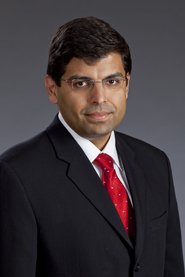With new leadership in place, Nomura Securities International has targeted a fall release for its revamped electronic trading effort.

"We’re hoping to get the first slew of clients connected to our algorithms in October," said Amit Manwani, the former Lehman exec who heads quantitative and analytics products in the U.S.
Beyond algorithms, Nomura plans to release a kitchen sink of offerings to clients, including a crossing network, a smart router, prime brokerage and several alert and connectivity-related services, Manwani said.
NSI is the U.S. brokerage of the giant Japanese bank. The build-out of the U.S. brokerage’s electronic product offering picked up speed last November, when Manwani joined from Lehman Brothers. Manwani, who specialized in analytics and algorithms during his eight years at Lehman, oversaw the development of the new electronic products. He works under Ciaran O’Kelly, the former head of global equities at Banc of America Securities. O’Kelly, a one-time Salomon Brothers block trader, joined NSI last month as head of equities, Americas.
Nomura’s U.S. equities operations are expected be profitable when its fiscal year ends in March. And the firm’s electronic offering will play a significant role in generating revenue quickly, Manwani said.
This is a new electronic effort for Nomura, with a new team at the helm. But it’s not the first crack the firm has taken in the space. Nomura has a history in the U.S. that dates back to 1927.
Until 2003, though, it concentrated primarily on marketing and distributing its research product and deal flow that originated mostly in Asia. It also had a prop trading presence.
In 2003, Nomura hired a team of traders and technologists from ITG–including its head of sales and trading for the western region, a former head program trader and a top algo modeler–to roll out a high-touch and low-touch U.S. offering. The effort didn’t gain much traction, though, and the group eventually merged into Instinet sometime after Nomura purchased it in February 2007.
Building its electronic offering from the ground up, the firm expects this run to be different.
Beginning in October, the U.S. equities operation will roll out its core algos, which will include the basics: VWAP, TWAP and implementation shortfall. It will then move to single-stock algos that aggregate liquidity in the light and dark markets, Manwani said.
Next, Nomura will let U.S. traders venture into international markets. These algos will likely include an ADR-type, and one that trades simultaneously in multiple markets, Manwani said.
The firm will also add a portfolio algo to its menu that lets clients impose name and sector constraints that control how each name within a list trades, taking into consideration each name’s, or sector’s, characteristics. It will also balance a portfolio’s buys and sells so that one side never outpaces the other, Manwani said.
Nomura’s U.S. group will debut an "algo-to-algo" crossing network in October, as well. But it won’t be registered as an ATS initially, as the flow won’t merit it, Manwani said. The network will focus on crossing algo flow internally before going to the marketplace.
"What we don’t intend to have is a pool where clients can electronically access liquidity outside of the algos," he said. "It will be an algorithmic-mediated access to our crossing facility."
In November, Nomura will launch its own smart router for what Manwani called the firm’s "DMA-type clientele, whether the usual clients who want access to the market or our high-frequency/stat-arb clients."
Nomura has connectivity to all of the displayed venues. It is taking an incremental approach to connections to dark venues, though.
"Some markets give you a large rebate, but it’s not clear that what is going through those markets is better from an execution perspective," Manwani said. "So, before we get connected to these venues, we’re going to do extensive execution quality analysis."
Launching the smart router should coincide with the debut of Nomura’s U.S. prime brokerage for its high-frequency/stat-arb customers, he added.
Nomura will also give customers access to various alerts. The service monitors orders and lets users pre-define alerts that notify them of specific events that are taking place during the trading day. These can include market alerts, such as large prints in particular names. Or, Manwani added, they could be alerts give clients a look at how their algos are performing.




